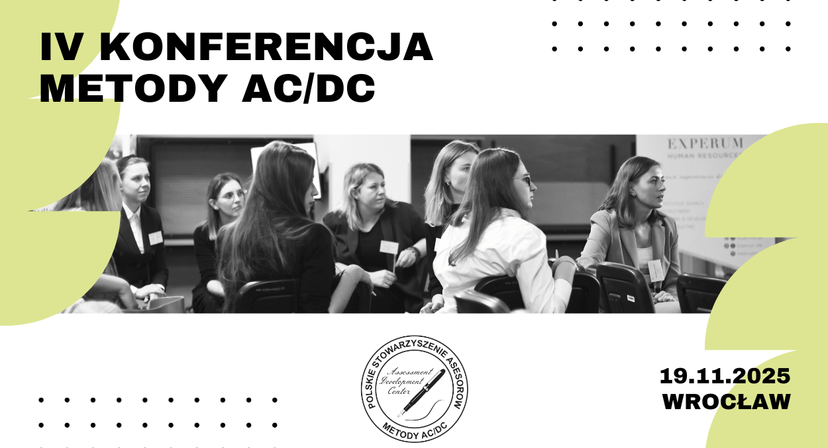Fundusze alternatywne stają się coraz bardziej popularne wśród inwestorów nabywających różnego rodzaju aktywa na rynkach kapitałowych. Jak można w prostych słowach wytłumaczyć, czym są fundusze alternatywne i skąd bierze się ich rosnąca popularność?
Marta Kraszewska: Faktycznie fundusze alternatywne stały się w ostatnich latach bardzo popularne zarówno w Europie (w tym również w Polsce), jak i na całym świecie. Zwykle staram się wytłumaczyć czym są fundusze alternatywne poprzez porównanie ich do funduszy tradycyjnych. Przedmiotem inwestycji tradycyjnych funduszy są przede wszystkim akcje i obligacje (lub inne pokrewne instrumenty finansowe). Fundusze alternatywne inwestują we wszelkie aktywa inne niż tradycyjne inwestycje w akcje i obligacje. Tu wachlarz możliwości jest bardzo szeroki, zaczynając od funduszy inwestujących w nieruchomości, poprzez fundusze typu private equity (inwestujące w prywatne przedsiębiorstwa) czy inwestycyjne fundusze pożyczkowe, aż po fundusze inwestujące w dzieła sztuki, monety czy drogie alkohole, np. whisky.
Sekret popularności funduszy alternatywnych tkwi w ich zróżnicowaniu i elastyczności. W obliczu coraz większej dynamiki na rynkach finansowych oraz związanej z tym niepewności inwestorzy szukają sposobów na dywersyfikację portfela swoich inwestycji, pragną zminimalizować ryzyko przy jednoczesnym zachowaniu solidnej stopy zwrotu. I takie rozwiązanie dostarczają im fundusze alternatywne.
Oczywiście konsekwencją rosnącej liczby funduszy alternatywnych stało się rosnące zapotrzebowanie na kompleksowe usługi administracyjne, wspierające działalność tego rodzaju funduszy, w tym usługi księgowości i sprawozdawczości finansowej. Dlatego wiele lat temu partnerzy Brown Brothers Harriman postanowili utworzyć osobny dział Alternatives Investment Funds, którego celem jest świadczenie szeroko pojętych usług administracyjnych dla klientów zewnętrznych będących funduszami alternatywnymi. Od 2012 roku nasi klienci obsługiwani są również przez biuro Brown Brothers Harriman w Krakowie, gdzie mieści się dział księgowości i raportowania finansowego dla alternatywnych funduszy inwestycyjnych.
Czy to oznacza, że osoby pragnące podjąć pracę w dziale księgowości dla funduszy alternatywnych w Brown Brothers Harriman muszą również wykazać się wiedzą z zakresu specyfiki działalności tego rodzaju funduszy?
Oczywiście nie. To naszym zadaniem jest przybliżenie charakterystyki działalności funduszy alternatywnych nowym pracownikom oraz specyfiki księgowości czy sprawozdawczości finansowej tych funduszy. W tym celu stworzyliśmy wewnętrzny program szkoleń, w ramach którego różnego rodzaju szkolenia merytoryczne i techniczne dostarczane są przez naszych doświadczonych pracowników. Jesteśmy w stanie nauczyć specyfiki księgowości funduszy alternatywnych każdą osobę z odpowiednim wykształceniem lub doświadczeniem w obszarze tradycyjnej księgowości. I tu pragnę uspokoić wszystkich potencjalnych kandydatów do naszego działu – być może termin "księgowość funduszy alternatywnych" brzmi skomplikowanie, ale w rzeczywistości nie różni się wiele od księgowości tradycyjnej; obowiązują te same zasady podwójnego zapisu, memoriału, ciągłości, istotności itd. Dlatego potencjalni kandydaci powinni przede wszystkim wykazać się ogólną wiedzą z zakresu rachunkowości, którą weryfikujemy podczas procesu rekrutacji.
Jakie inne kompetencje poza wiedzą merytoryczną są weryfikowane podczas procesu rekrutacji?
W Brown Brothers Harriman poszukujemy przede wszystkim kandydatów wykazujących się zaangażowaniem, umiejętnością współpracy oraz komunikacji. Każdy jest częścią zespołu, musi potrafić współdziałać z innymi, a więc te kompetencje miękkie są również weryfikowane podczas rozmowy rekrutacyjnej. Doceniamy osoby ze świeżym spojrzeniem, wnoszące swoje pomysły do organizacji. Oczywiście staramy się budować w zespole równowagę różnych kompetencji i umiejętności, rozumiemy, że nie każdy musi i nie każdy chce być w przyszłości liderem lub managerem. Nasz zespół jest zróżnicowany pod względem płci i doświadczenia, zatrudniamy zarówno osoby młode, świeżo po studiach, jak i doświadczonych ekspertów w zakresie księgowości, osoby posiadające certyfikaty w obszarze rachunkowości, sprawozdawczości finansowej i finansów (ACCA, uprawnienia biegłego rewidenta). W Brown Brothers Harriman w pełni wspieramy pracowników chętnych rozwijać się zawodowo poprzez programy szkoleń wewnętrznych oraz oferujemy pomoc finansową w zdobywaniu międzynarodowych kwalifikacji (ACCA, CIMA, CFA).
Jak wygląda praca księgowego funduszy alternatywnych w Brown Brothers Harriman? Co odróżnia tę pracę od innych podobnych ofert na rynku w Krakowie?
Przede wszystkim dajemy naszym pracownikom możliwość poznania pełnego procesu księgowości i sprawozdawczości finansowej – od zaksięgowania najprostszej transakcji w systemie księgowym aż do sporządzenia pełnego rocznego sprawozdania finansowego wraz z informacją dodatkową. Każdy księgowy odpowiedzialny jest za pełen proces, a nie tylko za pewien niewielki wycinek związany np. z należnościami bądź zobowiązaniami handlowymi. Uczymy naszych pracowników umiejętności szerokiego spojrzenia na efekty księgowanych transakcji, analizy finansowej danych otrzymywanych z systemu księgowego, uzasadniania istotnych odchyleń w danych finansowych. W efekcie praca ta łączy elementy księgowości, sprawozdawczości finansowej oraz analizy finansowej. Dodatkowo, nasi księgowi mają możliwość bezpośredniego kontaktu z przedstawicielami klienta (często są to przedstawiciele wysokiego szczebla np. managerowie funduszy, dyrektorzy finansowi), audytorami czy doradcami podatkowymi, co również rozwija ich zdolności profesjonalnej komunikacji, zarówno tej pisemnej, jak i werbalnej. Myślę, że praca ta jest ciekawą propozycją dla osób chcących rozwijać się w obszarze księgowości i sprawozdawczości finansowej oraz szukających alternatywy do ofert centrów księgowych, gdzie procesy księgowe są często mocno podzielone i obejmują niewielki wycinek pracy księgowego.
Anglojęzyczna wersja wywiadu
Specifics of work performed by an accountant within alternative investment funds introduced by Marta Kraszewska, Head of Alternatives Investment Funds department in Brown Brothers Harriman (Polska) in Krakow.
Alternative investment funds are becoming more popular across investors’ asset portfolios. Would you briefly explain what alternative investment funds are and where increasing popularity is coming from?
Marta Kraszewska: Alternative investment funds became very popular in Europe (including Poland) as well as worldwide. Usually, I am trying to explain what alternative investment funds are by comparing them to the traditional ones. Asset portfolios, held by traditional investment funds, mainly consist of shares and bonds (or other similar financial instruments). Alternative investment funds’ portfolios are composed of any other type of investments. Allocation of assets within such investment portfolio may be highly diversified by holding assets in real estates, private equity companies, debt funds or even funds composing their portfolios of art, collectable coins or expensive alcohols e.g. whiskey.
Factors, allowing alternative investment funds becoming so popular, come from their high diversity and flexibility. Nowadays, stockholders are challenged with financial markets being very dynamic, which causes lack of confidence and a lot of insecurity along investors. It is leading to an active searching of ways of diversifying their investment portfolios without compromising expected rate of return. Such solutions can be delivered by alternative investment funds.
One of the consequences of alternative investment funds being increasingly used by institutional investors was enhanced demand on comprehensive administration services, supporting this kind of activities, including accounting and financial reporting services. Thus, several years ago, Brown Brothers Harriman decided on establishing separate Alternatives Investment Funds Department, in order to provide external clients with wide range of administration services. Since 2012, our clients have been provided with services by Brown Brothers Harriman office located in Kraków (Krakow), which runs well established accounting and financial reporting departments.
Does that mean that people willing to start their careers in alternative investment funds accounting department in Brown Brothers Harriman must present wide knowledge of alternative funds investment environment?
Of course not. It is our job to provide a full training and introduce new hires to the specifics of alternative investment funds environment as well as characteristics of accounting and financial reporting framework. We created internal comprehensive training programme, delivered by our experienced staff, which covers wide range of technical aspects including a number of real life cases. We are able to teach the specifics of alternative investment funds anyone already possessing appropriate academic background or experience gained within traditional accounting. Let me also clarify that despite the fact that the term "alternative accounting" may sound a little bit complicated, in fact it does not differ much from traditional accounting, the same rules apply, like: double-entry bookkeeping, accrual basis, consistency, materiality etc. Thus, candidates applying for one of the roles within alternative investment funds department needs to present a general accounting knowledge and expertise, which is then tested during job interview by written test assessing the quality of possessed skills.
What kind of other skills and competencies, apart from technical accounting knowledge, are verified and assessed during job interview?
Brown Brothers Harriman’s ideal candidates are committed and dedicated towards their duties and responsibilities and possess excellent communication skills. Everyone is an integral part of the team of professionals and must present a strong teamwork attitude. All these soft skills are also verified and assessed during job interview. We appreciate enthusiastic people bring fresh ideas to the organisation. One of our main objectives is to build a team, which is diversified in terms of skills, abilities, knowledge and competencies. Not everyone has to be and is willing to become a team leader or manager in the future. Our department is diversified, when it comes to experience, possessed knowledge and skills. We hire both young graduates and experienced professionals with expertise in accounting and finance, being members of The National Chamber of Certified Auditors or Association of Charted Certified Accountants. Brown Brothers Harriman is actively supporting its employees who are willing to develop their professional skills by providing them with a number of comprehensive internal training schemes, resources and guidance to help realize their careers as well as assisting with financial support in order to obtain professional certifications (ACCA, CIMA, CFA).
How does the work of alternative investment funds accountant in Brown Brother Harriman look like? What does distinguish this work opportunity from other ones being placed on Krakow job market?
First of all, we provide our employees with an opportunity to get familiar with an entire accounting and financial reporting process – starting from booking the most basic and simple transaction in the accounting software and finishing with preparing full annual accounts, financial statements including additional information and disclosures. Each accountant is responsible for the full process and not just for a particular part e.g. accounts payable (AP) or accounts receivable (AR). We teach our employees to present a general and wide perspective to what the consequences of booking a particular transactions are, analysis of the financial data downloaded from the accounting software, explaining material variances between current and comparative financial data. It results in, this job putting together elements of accounting, financial reporting and financial business analysis. What is more, our accountants have a direct contact with our clients and their representative (including members of senior management and board of directors, fund managers and chief financial officers), auditors or tax advisors giving them opportunity to develop their professional communication skills, both written and spoken. In my opinion, this work is an interesting offer for individuals seeking for professional development within accounting, finance and financial reporting as well as for those looking for an alternative to other accounting centres, where in comparison to what we offer, career opportunities are being mainly focused around a single process covering a small part of accounting work.
Marta Kraszewska
Vice President, joined BBH in 2014 and is currently Head of Alternatives in Kraków. Prior to this role, Marta Kraszewska was the Assistant Department Head in Fund Services. Before coming to BBH, she was a Regional Management Information, Planning & External Reporting Manager in HSBC Global Finance Centre in Poland. She holds a Ph.D. in Automatics and Robotics from AGH University of Science and Technology in Krakow, a M.S. in Automatics and Robotics, and an M.S. in Management and Marketing. Additionally Marta Kraszewska has been a lecturer at AGH University of Science and Technology in Krakow since 2005, providing courses about artificial intelligence, operations research, finance and economy.



